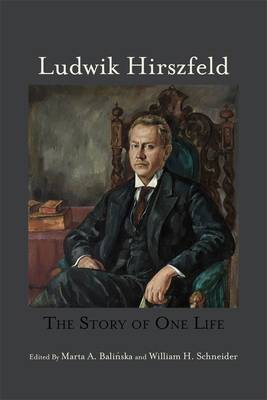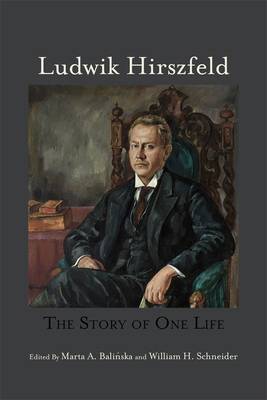
Nos liseuses Vivlio rencontrent actuellement des problèmes de synchronisation. Nous faisons tout notre possible pour résoudre ce problème le plus rapidement possible. Toutes nos excuses pour la gêne occasionnée !
- Retrait gratuit dans votre magasin Club
- 7.000.000 titres dans notre catalogue
- Payer en toute sécurité
- Toujours un magasin près de chez vous
Nos liseuses Vivlio rencontrent actuellement des problèmes de synchronisation. Nous faisons tout notre possible pour résoudre ce problème le plus rapidement possible. Toutes nos excuses pour la gêne occasionnée !
- Retrait gratuit dans votre magasin Club
- 7.000.0000 titres dans notre catalogue
- Payer en toute sécurité
- Toujours un magasin près de chez vous
Ludwik Hirszfeld
The Story of One Life
69,95 €
+ 139 points
Description
An annotated English translation of the autobiography of Polish microbiologist Ludwik Hirszfeld (1884-1954), with a focus on his contributions to international public health. Ludwik Hirszfeld (1884-1954), one of the most prominent serologists of the twentieth century, discovered the inheritance and established the nomenclature of blood groups and opened the field of human population genetics. He also carried out groundbreaking research in the genetics of disease and immunology. Following World War II, he founded Poland's first Institute of Immunology in Wroclaw, which now bears his name. His autobiographical memoir, The Story of One Life, first published in Poland in 1946, immediately became a bestseller and has been reedited several times since. It is an outstanding account of a Holocaust survivor and a writer capable of depicting the uniqueness and the tragedy of countless individuals caught up in the nightmare of 1939-45. He recollects his time as a physician in the Serbian army in 1915 and his satisfaction as a scientist who helped rebuild Poland after the Treaty ofVersailles; in so doing the contrast between the world before and the world after World War II could not be starker. Hirszfeld wrote this book while in hiding after he escaped from the Warsaw ghetto in 1943; he buried the manuscript and retrieved it only after the war.
Drawing on interviews with Hirszfeld's former students and family, as well as unpublished documents, this translation is annotated and has an introduction written by two scholars with unique qualifications to understand both the immediate setting in which Hirszfeld lived his life, and the broader implications of his work to the history of medicine. Marta A. Balinska is a writer and an international consultant in public health.
William H. Schneider is professor of history at Indiana University.
Drawing on interviews with Hirszfeld's former students and family, as well as unpublished documents, this translation is annotated and has an introduction written by two scholars with unique qualifications to understand both the immediate setting in which Hirszfeld lived his life, and the broader implications of his work to the history of medicine. Marta A. Balinska is a writer and an international consultant in public health.
William H. Schneider is professor of history at Indiana University.
Spécifications
Parties prenantes
- Editeur:
Contenu
- Nombre de pages :
- 508
- Langue:
- Anglais
- Collection :
- Tome:
- n° 16
Caractéristiques
- EAN:
- 9781580463386
- Date de parution :
- 01-08-10
- Format:
- Livre relié
- Format numérique:
- Genaaid
- Dimensions :
- 155 mm x 231 mm
- Poids :
- 1065 g






